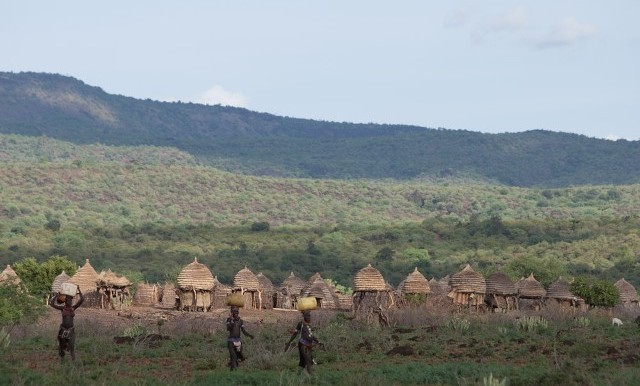Authorities in the proposed state of Namurnyang, Eastern Equatoria, are soliciting support to convene a peace conference aimed at bringing together feuding communities.
The objective of the conference, according to the minister of local government in Namurnyang state, Sabrino Peter, would be an opportunity to hold dialogue aimed at addressing issues of insecurity between Didinga and Taposa, the two main neighbouring communities in the area.
Toposa and Didinga have repeatedly clashed over land, livestock and water in the past. Several attempts to secure a lasting peace deal and hostilities have succeeded in causing a pause. Abduction of children has also been identified as one of the other causes of communal tensions and fights between the two tribes in the area over the past years.
Local authorities in a series of interviews with Radio Tamazuj blamed the ethnic Toposa for carrying out attacks resulting in the death of more than 38 people, including women and children from ethnic Didinga. Four others were also injured in Nauru area between 18 and 20 May 2016. But some sources also say the cause of new communal fight was caused by the abduction of 18 children and cows by the ethnic Didinga. According to Namurnyang’s local government minister, 6 of the 18 abducted children were later recovered, leaving 12 others unaccounted for.
Budi County Commissioner Daniel N. Lochiek confirmed the attack on the area. He said it was carried out by members of ethnic Taposa group on account that their children were abducted by members of ethnic Didinga. The official revealed that he visited the scene of the incident with the governor to assess the situation and to find out reasons for burning down villages and killing people, as well as seeking their views of how best the dispute could be resolved.
Authorities say use of force in form of revenge attack would exacerbate the situation, thus preferring convening a peace conference at which a deal to trace and bring the abducted children and cows as well as pay blood compensation for members of ethnic Didinga killed by ethnic Taposa during attempts to recover their allegedly abducted children would be discussed.
Namurnyang’s local government minister says the focus should shift from revenge killing to reconciliation led by the people. He denied that the clashes have political influences but that the incidents have become a culture and history of the two communities even before his generation. History, he said, has shown that peace initiatives led by politicians and people out from outside the two communities have never held before if they do not take into consideration the context of the conflict.
David Mayo, a member of parliament at the national legislative assembly in Juba and who hails from ethnic Didinga, said the local initiative is important measures to resolve dispute.
“There have been cattle theft and grazing disputes but were handled by the chiefs and local government officials. The word of peace now has been getting out to the people as there are plans to organize confidence-building peace conference and other measures between the traditional leaders,” said Mayo on Thursday when reached to comment on the initiative.
Photo: A Taposa village (Bahr el Jebel Safaris)



